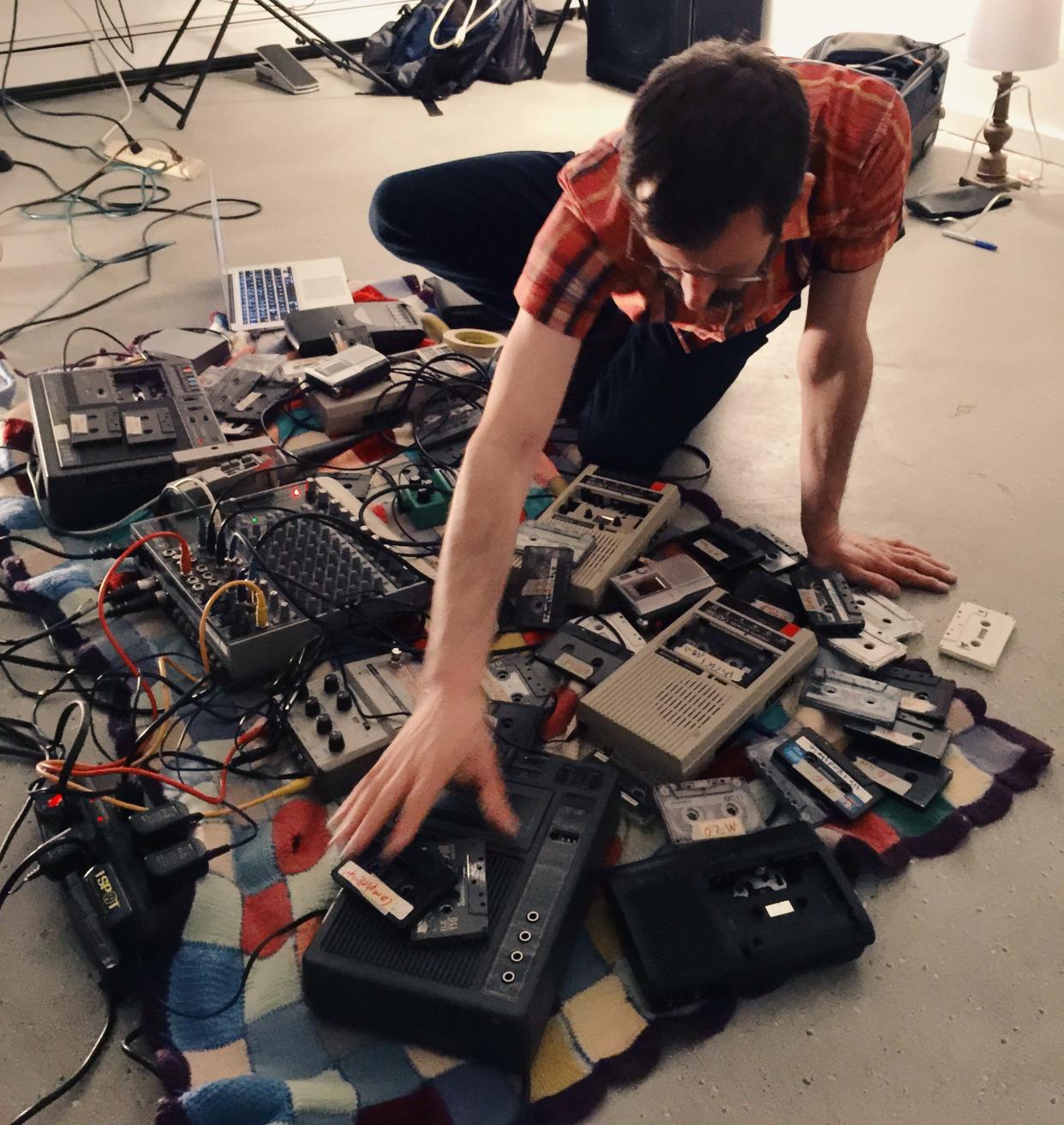Did cassette tapes change the world? New book says yes. Meet the author at Changing Hands

In the introduction to “High Bias: The Distorted History of the Cassette Tape,” Phoenix-based author Marc Masters shares a vivid memory of freshman year at college.
It’s the first week of school and the guy across the hall asks if he’d like a copy of a mixtape he’d been given by a friend back home.
“’Toxic Tunes’ was filled with songs by weird punk bands I had read about in high school but never actually heard,” Masters writes. “Where I grew up, it took an hour to drive to the closest record store, and that store certainly wouldn’t have sold anything that was on this mixtape.”
Masters says his friend from college has no memory of that tape exchange.
“One of the wild things about tapes is you don’t know which tape you dubbed for someone might’ve changed what they thought about music,” Masters says. “Even if you don’t remember the tape, it could’ve changed somebody’s life.”
Researching 'High Bias: The Distorted History of the Cassette Tape'
It’s clear that Masters’ deeply personal connection to cassette tapes has informed the writing of “High Bias.”
But what makes it such a fascinating — and authoritative — deep dive is the richly detailed writing and the research that went into tracing the cassette tape’s journey through the industry-led backlash to the Walkman era and what Masters calls “this kind of semi-resurgence.”
He ended up talking to more than 100 sources.
“The research part was really fun,” he says. “Most people have pretty personal, warm and emotional memories of cassettes."
His own warm memories stretch back well beyond his freshman year at college.
“I’m in my mid-50s, and I grew up when cassette tapes were the main way to get music to friends, and from friends,” he says. “So I was always a big fan.”
He recalls his first exposure to the format.
“I knew that tapes existed,” Masters says. “But it blew my mind when I figured out that you could tape a record, especially one that you had borrowed from a friend, and no one would complain. I mean, obviously the music industry did complain. But nobody could stop you from doing it.”
To Masters, there are several ways in which cassette tapes constitute a revolutionary format.
“One level is basically giving people freedom to listen to, copy or have control of music on their own terms,” Masters says. “If you got a record or listened to the radio, there was someone else sort of telling you how to listen and in what order. This kind of freed you up.”
It also made it possible to listen to your music on the go.
“Before cassettes, you couldn’t really take music outside the house,” he says. “It’s not like people were walking around with turntables on the sidewalk. It made music a bigger part of everybody’s life.
"It’s really the first thing that led to us thinking of music as a personal soundtrack and sort of a personal definition of self. I’m sure record collectors thought that before tapes came along but I’m not sure it was such a prevalent notion."
Cassettes played a role in the rise of hip-hop, indie rock and Metallica
“High Bias” also explores the impact cassettes had on the rise of genres including hip-hop, go-go, lo-fi indie-rock and metal.
“It gave musicians who didn’t have access to expensive studios or ins with record labels that could pay for things a way to make their own music, dub it and get it out to people,” Masters says.
“Not only was it faster and less expensive than a studio, especially lo-fi indie musicians started to like the weird anomalies of the format. It kind of fit with the weird music they were making.”
No audiophile would argue that cassette tapes are the way to go, a point Masters, who says he likes the way they “kind of add a murky quality that made the music a little more mysterious,” is willing to acknowledge. Within reason.
“I think they sound better than their reputation,” he says. “But they’re certainly the most low-fidelity-sounding of all formats.”
The 'Home Taping is Killing Music' backlash
"High Bias" also gets into the industry's “Home Taping is Killing Music” campaign.
“Once blank tapes got really prevalent, the industry immediately freaked out and thought people were going to be taping records instead of buying them, which wasn’t completely accurate,” Masters says.
“They gussied up a bunch of their own studies saying they were losing billions of dollars a year. But did they ever study how many people went ahead and bought another album by an artist that they like because they taped one of their records from a friend?”
To Masters, the industry backlash spoke volumes to the revolutionary nature of cassettes.
“Maybe they were losing a little bit of money but a lot of it is about control,” he says. “It’s ‘We don’t like this idea that people are out there changing out things and getting the things they want the way they want them without our say.’”
Marc Masters at Changing Hands
When: 7 p.m. Thursday, Nov. 30.
Where: Changing Hands Bookstore, 6428 S. McClintock Drive, Tempe
Admission: Free.
Details: 480-730-0205, changinghands.com.
Reach the reporter at ed.masley@arizonarepublic.com or 602-444-4495. Follow him on X, formerly known as Twitter, @EdMasley.
Support local journalism. Subscribe to azcentral.com today.
This article originally appeared on Arizona Republic: Cassette tapes were a revolutionary force, new book argues

